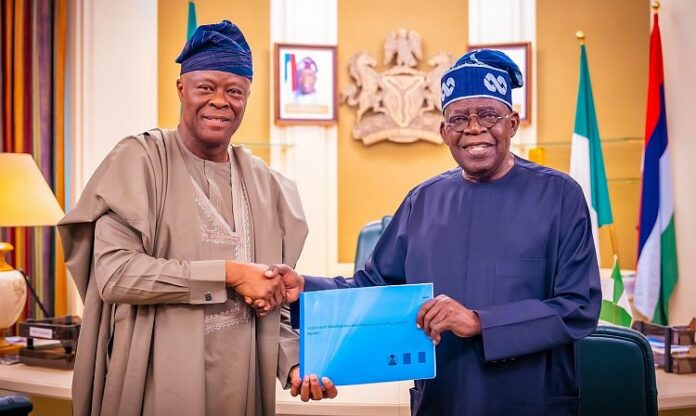Given that organized labor, which includes the Nigeria Labour Congress (NLC) and Trade Union Congress (TUC), only received a N2,000 increase from the N60,000 that was initially proposed as the new minimum wage, there may soon be another nationwide strike.
While labor, the organized private sector, and the Federal Government all agree that the current minimum wage of N30,000 is no longer viable given the country’s economic realities, reaching a consensus on a new figure has proven challenging.
The government and the organized private sector deemed labor’s proposed N494,000 excessive, while labor found the offer of N60,000 inadequate.
Following the expiration of a labor ultimatum on May 31, unions commenced a strike on June 3, resulting in the closure of businesses nationwide.
However, the strike was suspended on Tuesday after the Federal Government pledged to increase the minimum wage beyond N60,000.
Before the strike, the tripartite committee, comprising members from the Federal Government, states, and the Organized Private Sector, made successive offers to Labor: first N48,000, then N54,000, followed by N57,000, and finally N60,000. However, all four offers were rejected by the TUC and NLC.
The Organised Labour, after relaxing the strike, also vowed to reject any lean addition to the N60,000 offer by the tripartite committee on the new minimum wage.
“No, we also told them that it’s not that we’d get to the table, and you start adding ₦1, ₦2, ₦3,000 as you were doing, and we got some good guarantees here and there that they would do something good,” TUC president Festus Osifo stated in an interview.
However, following extensive deliberations with the organized private sector on Friday, the federal government raised its proposed national minimum wage to N62,000 from the previously rejected N60,000.
Despite this adjustment, organized labour’s proposal of N250,000 remains a substantial figure compared to the government’s offer.
A source who’s privy to the meeting said, “There was disagreement on the amount. The government offered N62,000 but Labour is now demanding N250,000. The report is to be communicated to the President for further deliberation”.
The committee is expected to present the report to President Bola Ahmed Tinubu.
Meanwhile, before the Federal Government raised its offer to N62,000 yesterday, the state governors under the aegis of the Nigeria Governors Forum, NGF, said that they could not pay the N60,000 minimum wage proposed by the Federal Government and which the organised labour had even rejected.
The governors said the N60,000 minimum wage proposal by the Federal Government was not sustainable, arguing that if they try it, a few states will end up borrowing to pay workers every month as they do not think this will be in the collective interest of the country, including workers.
According to the Governors, if they sustain the proposed N60 minimum wage by the Federal Government, it would result in many states spending all their Federation Account Allocation Committee (FAAC allocations on just paying salaries with nothing left for development purposes.
This was contained in a statement issued on Friday by the NGF acting Director of Media and Public Affairs, Hajiya Halimah Salihu Ahmed, titled “The forum’s stand on the: N60,000 minimum wage is not sustainable:.”
The governors also appealed for a fair and sustainable minimum wage that does not cripple state finances.
The labour force has yet to officially react to the governors’ take and the additional offer from the government, but it is said that the unions might rather embark on another strike to accept the present offer.




